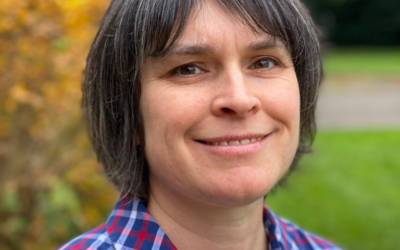By Dr Marysia Kratimenos
Seasonal affective disorder (SAD) was first described in the 1980s, although many doctors and sufferers were aware of the condition long before then. Indeed Hippocrates wrote in the fifth century BC, “Such diseases that increase in the winter ought to cease in the summer… The physician must treat disease with the conviction that each of them is powerful in the body according to the season which is most comfortable to it.”
In countries where the winter months are characterised by fewer daylight hours, many people develop deep depression as a consequence of the decreased light intensity. In Sweden, where there is six months of total darkness in the more northerly parts of the country, the suicide rate is the highest in the world.
Seasonal affective disorder is a form of depression that appears in autumn and may continue until March or April. In the spring there is often a mild state of euphoria, or hypomania. It is more common in women, and typically begins between the ages of 18 and 30. Some studies suggest it is very common, with one in 50 people having mood disturbances in the winter months.
The severity is variable. In mild forms of the condition, there may just be a desire to “hibernate”, stay at home in the warm and avoid socialising. In severe forms, there may be profound depression, with its concomitants. Sufferers may notice their sleep is disturbed, either over-sleeping or finding sleep difficult. There is often lethargy and fatigue, a lack of motivation and enthusiasm. Tasks seem onerous and there is often a lack of concentration. Anxiety may follow, especially associated with social events. Over-eating is common; the preferred foods are usually carbohydrate-rich. A gain in weight is common and this compounds the feelings of negativity and poor self-image. The libido suffers, as does the immune system. There is a greater susceptibility to viral and bacterial infections. The depression may be so severe as to precipitate suicidal feelings and deliberate self-harm may result.
Causes
There are several theories as to the cause of SAD, all of which relate to the effect of light on the brain: lack of sunlight leads to a higher level of a chemical, melatonin, which slows the body down. Hibernating animals secrete high levels of melatonin in order to sleep through the winter months. Another theory suggests the condition is caused by a disturbance of the dopamine and serotonin levels in a particular part of the brain, known as the hypothalamus. This area controls mood and appetite – for life, for food and for sex. Some researchers believe that sufferers of SAD have lower eye sensitivity to light. All three theories may be true. The eye sensitivity to light will affect the hormone levels, as the eye is essentially highly evolved nervous tissue.
Although these theories may serve to explain the mechanisms at play, there is still the unanswered question as to why some individuals are more susceptible to depression than others. Since homeopathy looks at the whole person, rather than a list of their symptoms, it is uniquely placed to help with depressions of all types, including those that exhibit periodicity. Such treatment must be undertaken by professional homeopaths, with experience in the field of emotional health issues, often in conjunction with other appropriate forms of treatment.
Like truth, depression is rarely pure and never simple. Many factors are involved, both hereditary and environmental. Mental and emotional problems are more common in certain families. Although twins may be separated at birth and therefore brought up in different circumstances, they are more likely to suffer from the same type of emotional health problem, thus implying a hereditary basis. A dysfunctional upbringing further compounds the situation.
Depression does not just suddenly appear out of the blue, although it may seem that way. People often describe it as descending like a dark cloud over them. In reality depression has its roots in the past. It is a reaction to unresolved emotional issues that are often partly, if not totally, forgotten or buried by the sub-conscious mind. The events that may cause depression in later life often occurred in childhood. In many cases these issues have to be explored and the past truly laid to rest before there is total healing.
Poetry and myth
In To Autumn John Keats describes “seasons of mist and mellow fruitfulness”, but to many people the approaching winter is better paralleled by his poem Ode on Melancholy. The opening verse depicts the strong suicidal desire that many sufferers of the condition experience and interestingly names many favourite homeopathic remedies for the treatment of depression.
No, no, go not to Lethe, neither twist Wolf’s-bane (Aconite), tight-rooted, for its poisonous wine; Nor suffer thy pale forehead to be kiss’d
By nightshade (Belladonna), ruby grape of Proserpine …
The myth of Proserpine, or Persephone, is particularly appropriate in the understanding of seasonal affective disorder. In Greek mythology, Persephone was the beautiful young daughter of Demeter, the corn goddess and Zeus, the king of the gods. She was devoted to her mother and spent her time tending to the gardens of Earth. Her beauty and innocence enthralled the god of the underworld, Hades, and he decided to make her his wife. He abducted her. Persephone was petrified and stood rooted to the spot as the nymphs fled for safety. She dropped her girdle as Hades swept her up in his chariot. Her mother, Demeter, was beside herself with grief at the loss of her daughter. She scoured the world looking for her, neglecting her duties. As a consequence the crops withered. Deprived of her attention, the eternal summer ceased. Leaves fell off the trees and coldness and darkness fell.
Eventually Demeter found the girdle and discovered Hades had abducted her daughter. No one was allowed to pass into the underworld, so she appealed to Zeus to intervene. Zeus took pity on the mother’s plight, but he was also cautious of incurring the wrath of Hades. As Persephone had eaten six pomegranate seeds of the twelve offered to her by Hades, he decided that Persephone had to spend six months of the year with Hades and could rejoin her mother for the other six. In celebration of the reunion the earth blossomed and warm weather returned, only to fade again when it was time for Persephone to return to Hades.
This charming explanation of the seasons has profound echoes with SAD sufferers. To them winter is a living hell and they feel responsible for their plight. Instead of being a season of celebration, of religious festivities and the New Year, to them it is a time of reflection on their misery. Existential fears surface as the body tries to adjust to the harsh climate and memories of happier times haunt them. The sense of isolation is compounded by the myth propagated by commercialism that Christmas is the time for happy families. Actually Christmas is well recognised as a major stress factor by psychologists.
Treatment
The use of light boxes, which recreate the summer light intensity, is a wellrecognised treatment and is highly effective in mild cases. It can cause problems though as the light is rather harsh and sore eyes may result. It can also disturb sleep patterns further. Anti-depressants are commonly prescribed, but these often cause side effects.
Counselling is recommended to ascertain the root causes of the depression and this is highly effective providing the patient is prepared to explore their psyche. It is painful and challenging to confront one’s past, to return to the underworld, yet this hero’s journey is often the only way to find total freedom from the mental torture. It is imperative to find someone prepared to act as mentor or guide to the labyrinths of one’s mind, someone that one can trust fully. Often that person is oneself. I often recommend this path to patients that are motivated to help themselves and provide them with the structure necessary to make this journey of transformation.
Despite the pervading quick fix culture, it is imperative to understand that true healing takes time and persistence. The use of appropriate homeopathic remedies can bring about dramatic changes in mood and behaviour and this is my favoured starting point in the treatment of SAD. But I firmly believe that following a stabilisation in the mood it is imperative to deal with any residual negative thought processes. As the Dalai Lama so eloquently puts it, “an undisciplined mind is like an elephant. If left to blunder out of control, it will create havoc.” Negative thought processes must be countered effectively, a process I liken to deadheading a plant. By regular removal of dead blooms and judicious pruning a plant will display its full beauty and potential, and so the human psyche. In his inspiring book The Art of Happiness, the Dalai Lama states that “the very purpose of our lives is to seek happiness” and clearly shows how this is attainable by training the thought processes. The book is appropriate for everyone, whatever their religious beliefs.
It is important to create a healthy environment at home to counter depression. Beauty lifts the spirits, as do wonderful scents. Aromatherapy or even a simple pot pouri will gladden the soul. This is not an invitation to a spending spree. Very simple and inexpensive measures can be employed. Flowering plants, like the Christmas cactus will brighten a room. Hyacinths can be grown from bulbs and have a sensual smell.
Good music will also feed the soul. Creative pursuits – any hobby that fills one with enthusiasm and recaptures the zest for life – also encourage healing. Consider an evening class – the company will combat the sense of isolation. Go wild – sign up for the belly dancing class! Laugh at yourself – think of all the happy hormones you’ll liberate. Watch the film Patch Adams if you need scientific proof of the value of laughter.
Being alone usually compounds depression but the company need not be human. There are immense health benefits to having a pet. Who cannot help laughing at the antics of a kitten with a ball of wool? If space is limited, brightly coloured fish encourage a calm, healing environment, as generations of dentists will attest to.
We are what we eat, as the television series of the same name so clearly demonstrates. Carbohydrate rich and fatty foods lower the mood, and lead to nutritional deficiencies of vitamins and trace elements, which also impede the immune system. Healthy fresh food will have a dramatic effect on one’s health, both physical and emotional.
SAD may feel like a life sentence, but there is an escape from Hades. It requires action, imagination and determination. The rewards are more precious than imaginable – a life of freedom and joy, a true awakening from the sleep of the dead soul.






